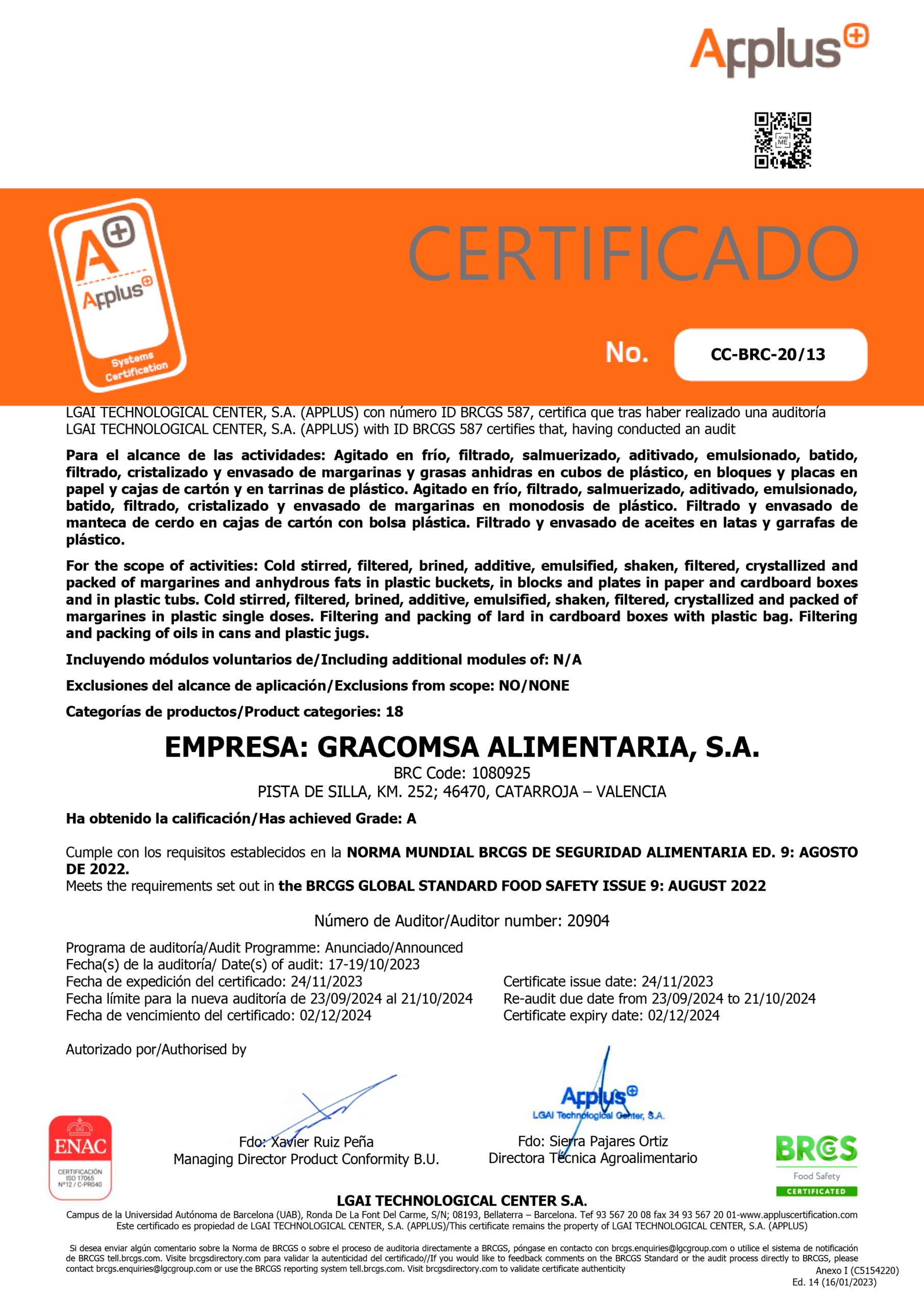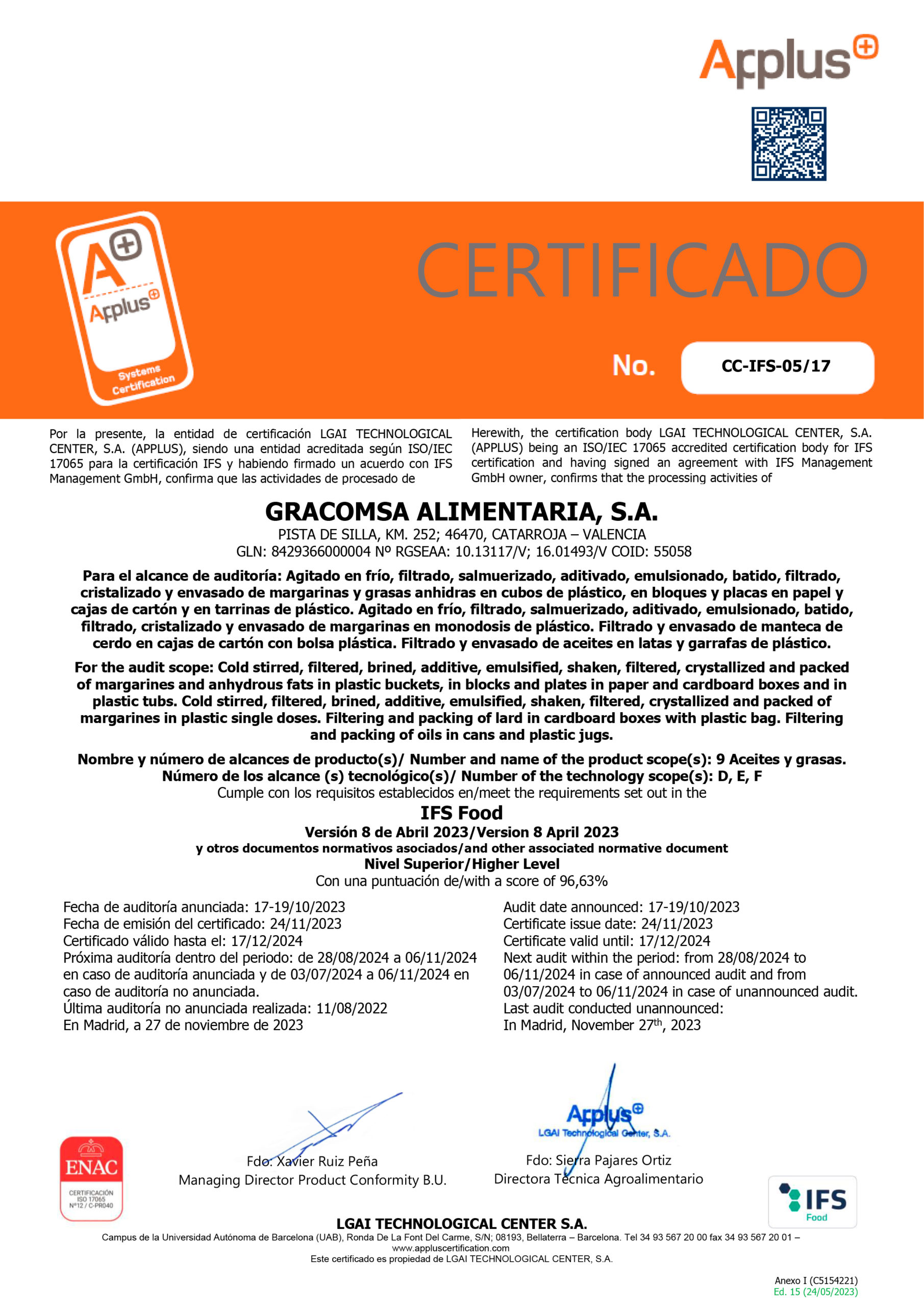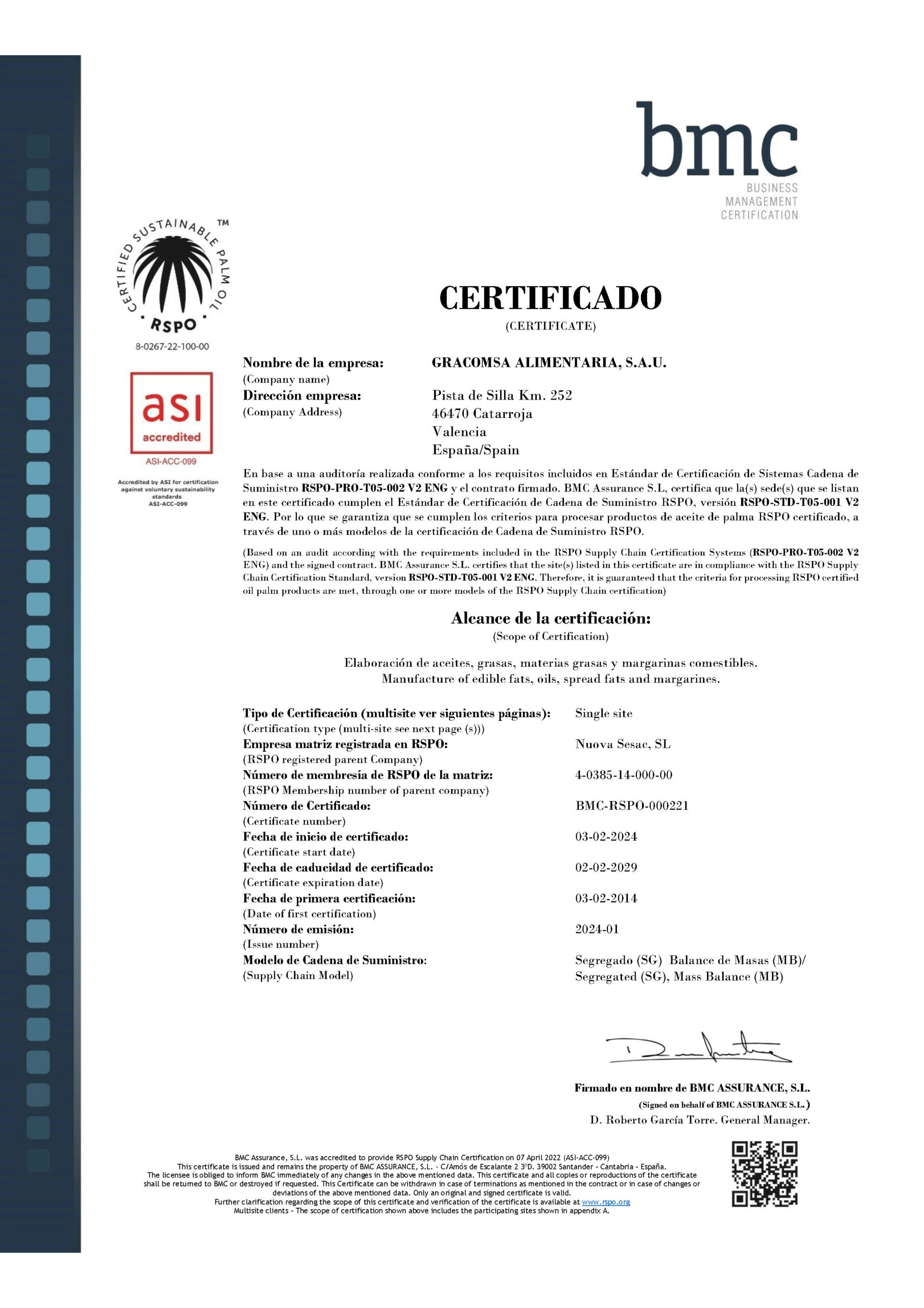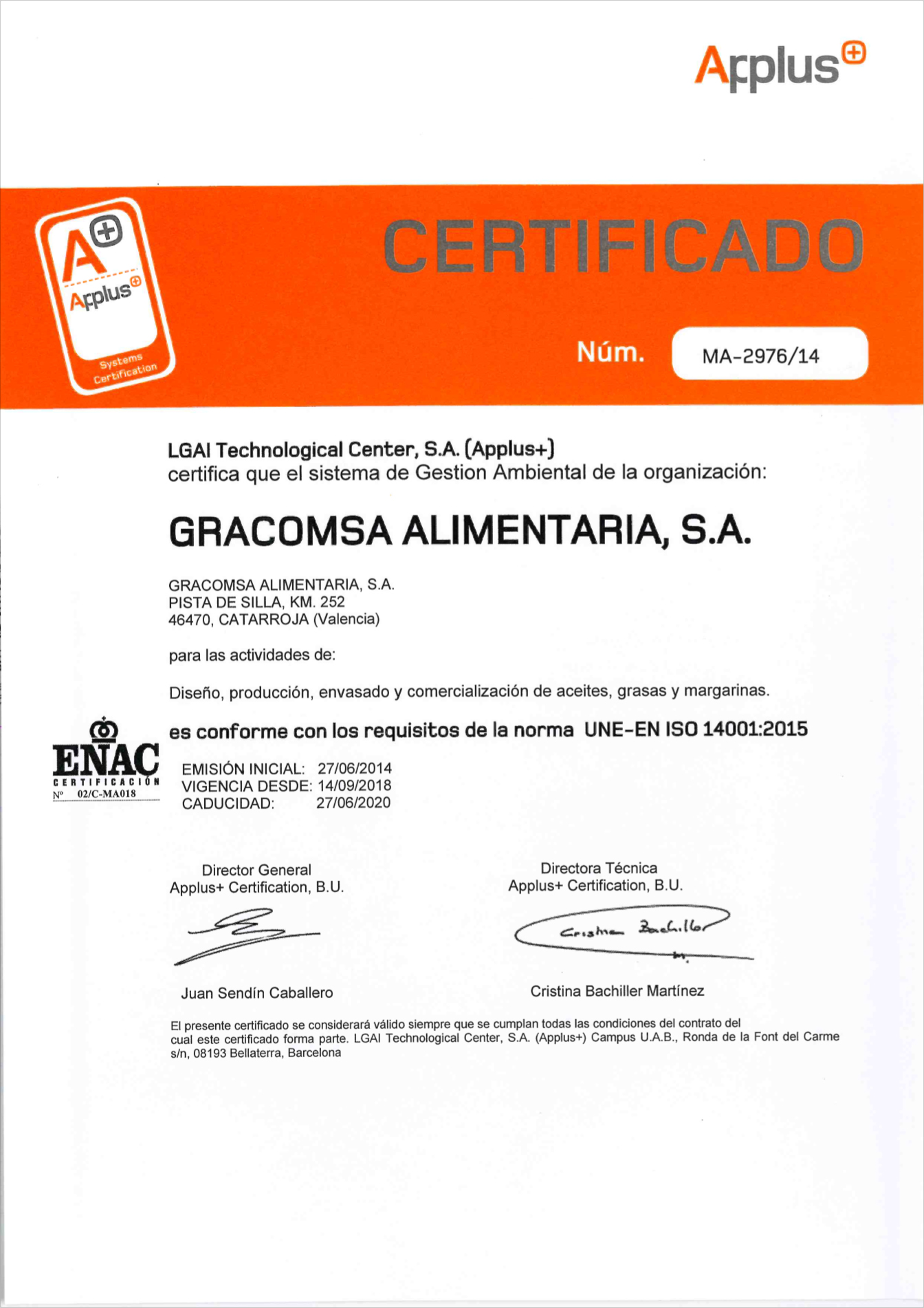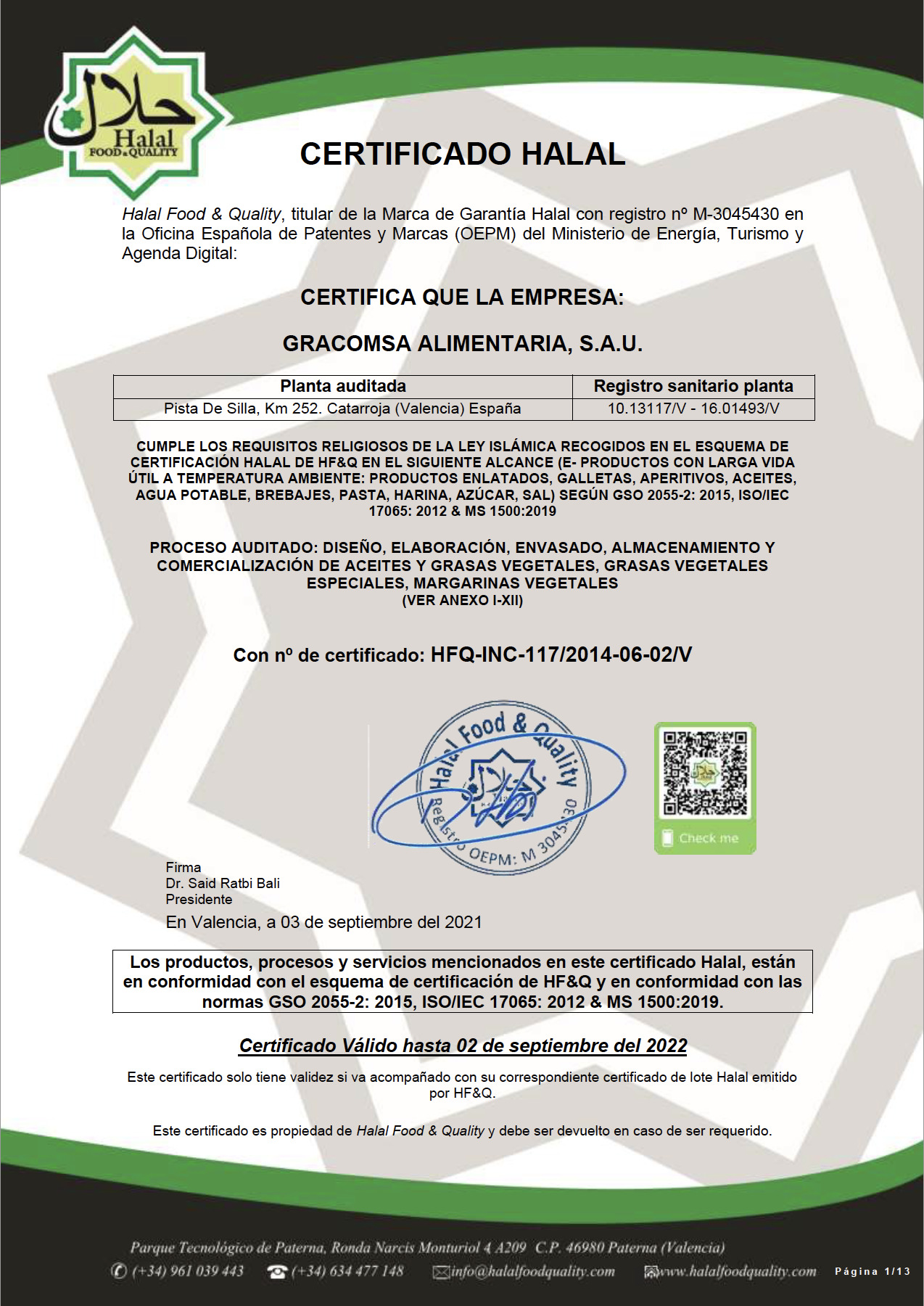When we speak about food safety, we are referring to the use of different resources and strategies to ensure that all foods are safe for consumption. For years we have known that consumers demand quality and safety, which has compelled us to continuously develop for our customers’ peace of mind. This is why it is important that strict processes and standards are complied with from the very start of production and throughout the food supply chain.
Our production processes comply with the requisites of the strictest certifications in terms of food safety and quality, two of which also certify sustainable environmental management.
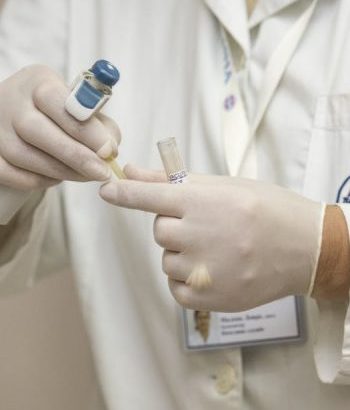
BRC
A certification standard developed by the British Retail Consortium, an organisation that encompasses 90% of food distributors in the United Kingdom. Despite its national origins in the private sphere, it is defined as the Global Standard for Food Safety and incorporates the HACCP System (Hazard Analysis and Critical Control Point) of the Codex Alimentarius.
This code enforces the implementation of a documented quality management system that controls the environmental compliance of our facilities, processes, personnel and products.
IFS
IFS Food is a food safety standard recognised by the Global Food Safety Initiative (GFSI) to audit companies that produce food products or companies that package food products in bulk. It focuses on the safety and quality of processed food products, and that the product is not contaminated during primary packaging.
IFS Food is one of the most important certifications for all food producers, especially those that produce private label products, as they have many requisites relating to complying with specifications.
RSPO
The RSPO (Roundtable on sustainable palm oil) is an international organization created to promote palm oil as a raw material from sustainable plantations in which, in addition, the rights of its workers are respected. The standard for obtaining certification
RSPO Suply Chain has been conceived and developed to guarantee the traceability and security of supply chains and provide credible evidence of the use of sources respectful of the non-overexploitation of nature and biodiversity. See our progress at www.rspo.org
ISO 14001
It is the ISO standard (International Standard Organisation) that accredits the incorporation of an Environmental Management System for our productive process, in compliance with the demands of the Administration and the wishes of our customers and society in general. It compels us to optimise the management of resources and waste, reduce negative environmental impacts and minimise accidental risks.
The standard is designed to strike a balance between maintaining profitability and reducing the impact on the environment by complying with environmental legislation.
HALAL
The “Halal Food & Quality” guarantee is a registered, patented and recognised trademark that was legally protected in 2012 to harmonise, standardise and enforce the requirements and ways in which agri-food companies can certify Halal food compliance under a single seal. It also certifies food safety and quality.
SAE (Specific Self-Control System Certification)
Royal Decree 993/2014 establishes the procedure and requirements of the official veterinary certification for exports.
The importing countries establish the health standards to which we must adjust our exports. Therefore, companies that wish to export foods of animal origin or those foods that contain products of animal origin to third countries must implement a Specific Self-Control System (SAE) to guarantee compliance with these additional requirements.

